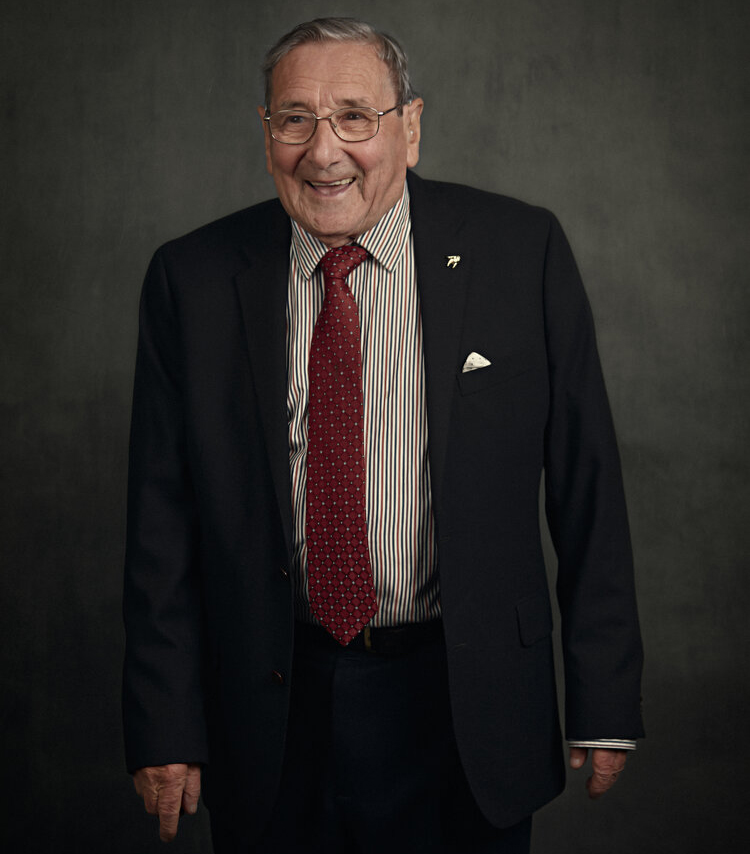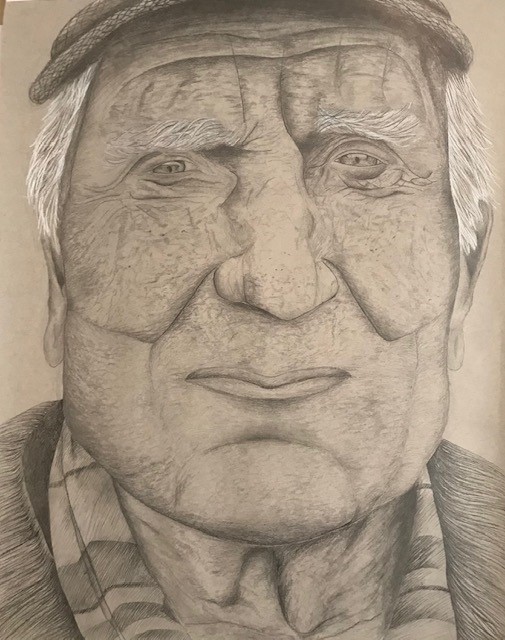
Werner was born in a suburb of Berlin, Germany on October 1st, 1927.
When Werner was 6 years old, his family moved from Berlin to Yugoslavia. His early years were happy ones. He loved to read, eat noodles, collect stamps, and play marbles with his friends. He had a diverse group of friends who hailed from a variety of religions. Werner did not experience any antisemitism as a child until right after his Bar Mitzvah when the Nazis came to power. That was when he started wearing the yellow star in the front and back of his clothing. “You couldn’t really hide the star by crossing your arms over the front of your shirt, so people used to push you, throw garbage at you,” he recalled.
Given the danger on the streets, Werner’s mother feared for his safety and arranged for him to live with a non-Jewish couple. He stayed with this kind family between the ages of thirteen and fifteen. One morning, there was banging on the door of the non-Jewish couple’s home. It was the German secret police. An officer pointed a gun at Werner and held a gun to his back as he used the restroom. The officers assaulted him and locked him in a bug-infested basement cell that was bare except for a bucket to use as a toilet. One day, while trapped in this basement cell, Werner looked out a barred window and saw his mother walking on the street. He hadn’t seen her for two years and though he waved to catch her attention, she did not see him and continued on her way down the street. That was the last time he ever saw his mother.
After spending six weeks in the cell, Werner was sent to Vienna where he found himself in a beautiful synagogue that had been destroyed during Kristallnacht. Glass shards littered the floor and torn prayer books and prayer shawls were saturated by water. “It was a mess,” he said. “The seats were all torn and cut up.”
Eventually, the SS put Werner on a train and he spent two days traveling to Czechoslovakia under Nazi supervision. He entered Terezín, a work camp where he laid railroad tracks. Terezin grew overpopulated with the innocent Jewish prisoners, so Werner was sent on a tightly packed train car to Auschwitz, a death camp or extermination camp. “For the next three days we were lying in our feces and in our urine and some people died in our car,” he remembered. “It was basically hell.” In Auschwitz, the SS officers had skulls and crossbones on their lapels. The Jews were tattooed with numbers and had absolutely nothing. “Doctors” would come in just to kill people and break their arms and back and legs. Food bowls were filled in the morning with brown water made out of acorns and they received two ounces of bread made out of flour and sawdust. In the afternoon or evening they received “soup” – salt water with tiny pieces of unwashed dirty potatoes – and maybe another piece of bread. They slept in barracks that often collapsed and killed those resting on the lower levels. Werner shared a barack with a man named Mr. Levine who was a magician and kept a deck of cards with him. Mr. Levine taught Werner magic tricks while they were in Auschwitz and for the rest of Werner’s life, he practiced magic.
Werner survived until liberation. He walked out of Auschwitz when he was 17-years-old. He weighed only 64 pounds. He had no family and no belongings. He hitchhiked a train back to Yugoslavia and entered his new life as a free man wearing the clothes of a deceased man.
Eventually, Werner moved to England where he worked as a machine tool picker and a dye maker. He married and relocated to the United States where he worked during the day and attended college at night for ten years. Ultimately, he became an industrial engineer, a father to two sons, two daughters-in-law and grandchildren.
Werner spent decades speaking to schools where he shared his remarkable life story.
Unfortunately, Werner passed away July 8th 2022. He was 94 years old. He leaves behind a beautiful and inspiring legacy.
To know more about Werner, click here:


